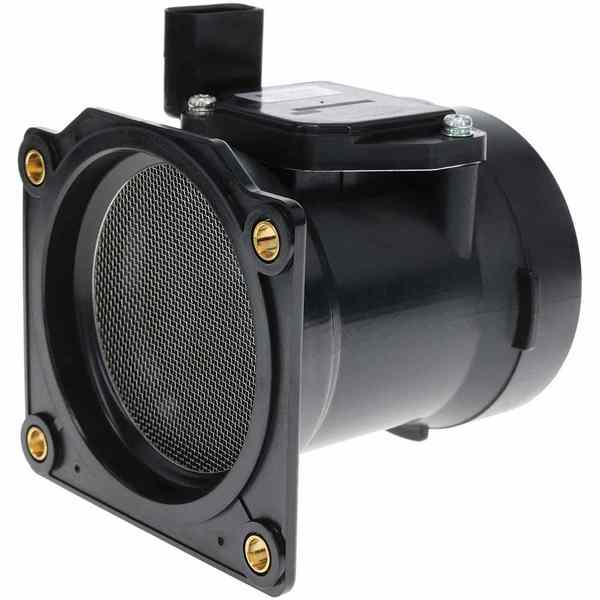Understanding the Mass Air Flow Sensor in Your Euro and How to Detect its Failure
Modern vehicles are equipped with various sensors and systems to ensure optimal performance, efficiency, and safety. One of the critical components in this network is the mass air flow (MAF) sensor found in many but not all Audi, BMW or Volkswagens. In this blog post, we’ll explore the importance of the mass air flow sensor in your car if it is equipped with one, how it works, and how to recognize the signs that it may have failed.
What is a Mass Air Flow Sensor?
A mass air flow sensor is a device that measures the amount of air entering your engine. This information is sent to your car’s engine control unit (ECU), which uses it to calculate the proper air-fuel mixture required for optimal combustion and fuel efficiency.
The mass air flow sensor plays a crucial role in engine performance. By maintaining the right balance between air and fuel, it ensures that your engine operates efficiently and minimizes emissions.
There are four main types of mass air flow sensors:
- Hot-wire mass air flow sensor: This type uses a heated wire to measure air flow based on the cooling effect of incoming air.
- Vane meter mass air flow sensor: This sensor uses a spring-loaded vane to measure air flow based on the force exerted by the incoming air.
- Karman vortex mass air flow sensor: This type uses a vortex generator to create oscillating vortices that can be measured to determine air flow.
- Ionization mass air flow sensor: This sensor measures air flow by ionizing the incoming air and measuring the current generated.
Signs of a Failing Mass Air Flow Sensor
A failing mass air flow sensor can cause various issues with your vehicle’s performance. Here are some common signs that your MAF sensor may be failing:
- Decreased fuel efficiency: A faulty MAF sensor can cause your engine to consume more fuel than necessary.
- Rough idling or stalling: An inaccurate MAF reading can lead to incorrect fuel mixtures, causing your engine to idle roughly or even stall.
- Hesitation or poor acceleration: A failing MAF sensor may cause your engine to hesitate or struggle when accelerating.
- Check engine light is on: A malfunctioning MAF sensor will likely trigger the check engine light.
- Rich or lean engine running conditions: Your engine may run too rich (excessive fuel) or too lean (insufficient fuel) due to incorrect MAF readings.
- Unusual or strong exhaust smells: A faulty MAF sensor can cause poor combustion, leading to unusual or strong exhaust odors.
How to Diagnose a Failing Mass Air Flow Sensor
If you suspect your MAF sensor may be failing, there are several ways to diagnose the issue:
- Visual inspection: Check for any obvious damage, loose connections, or debris on the sensor.
- Using an OBD-II scanner: Connect an OBD-II scanner to your vehicle’s diagnostic port to read any MAF-related error codes.
- Performing a voltage test: With a multimeter, you can test the voltage output of the MAF sensor while the engine is running to determine if it’s within the expected range.
- Evaluating changes in performance after cleaning the sensor: Clean the MAF sensor with a specialized cleaner and observe if there’s an improvement in your vehicle’s performance.
Preventive Maintenance and Repair
To keep your mass air flow sensor functioning correctly, consider the following maintenance and repair tips:
- Regularly scheduled maintenance: Follow your vehicle’s recommended maintenance schedule to ensure all components, including the MAF sensor, are functioning properly.
- Cleaning the mass air flow sensor: Periodically clean the MAF sensor using a specialized cleaner to remove dirt, dust, and debris that may affect its performance. Be sure to follow the manufacturer’s guidelines for cleaning frequency and methods.
- Replacement options and costs: If your MAF sensor is found to be faulty or damaged beyond repair, it’s essential to replace it. MAF sensor replacement costs can vary depending on your vehicle make and model, and whether you choose an original equipment manufacturer (OEM) or aftermarket part. Be sure to consult a trusted mechanic to ensure proper replacement and installation.
Understanding the role and importance of the mass air flow sensor in your car is crucial to maintaining optimal performance and fuel efficiency. By recognizing the signs of a failing MAF sensor and taking appropriate action, you can avoid more severe issues and potential damage to your engine. Regular maintenance, proper cleaning, and timely replacement of the MAF sensor can help ensure your Audi, BMW or Volkswagen runs smoothly and efficiently for years to come. If in fact your MAF has failed in your Audi, BMW or VW head over to ModdedEuros.com where we stock replacement MAF sensors from brands such as Delphi.


